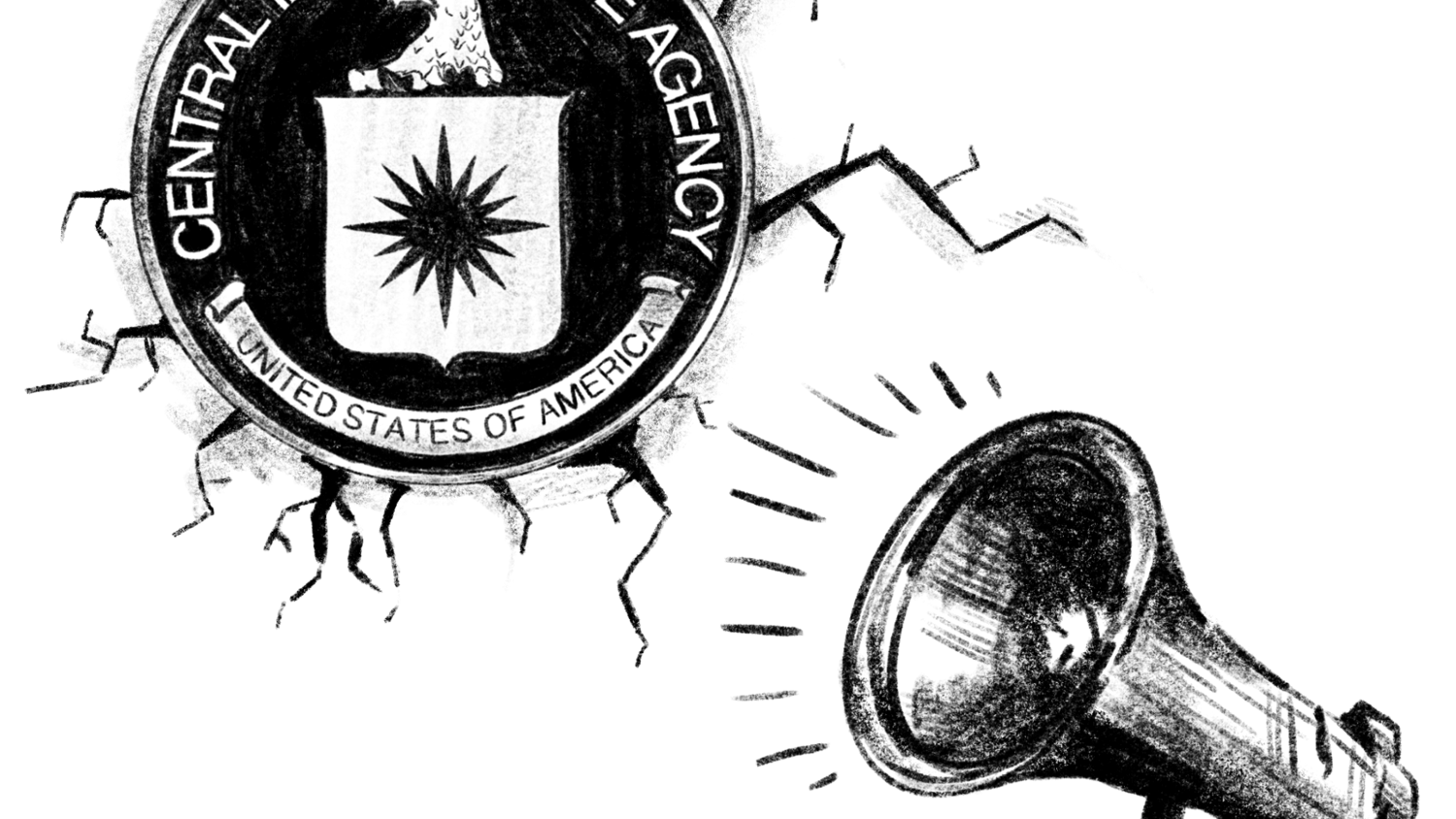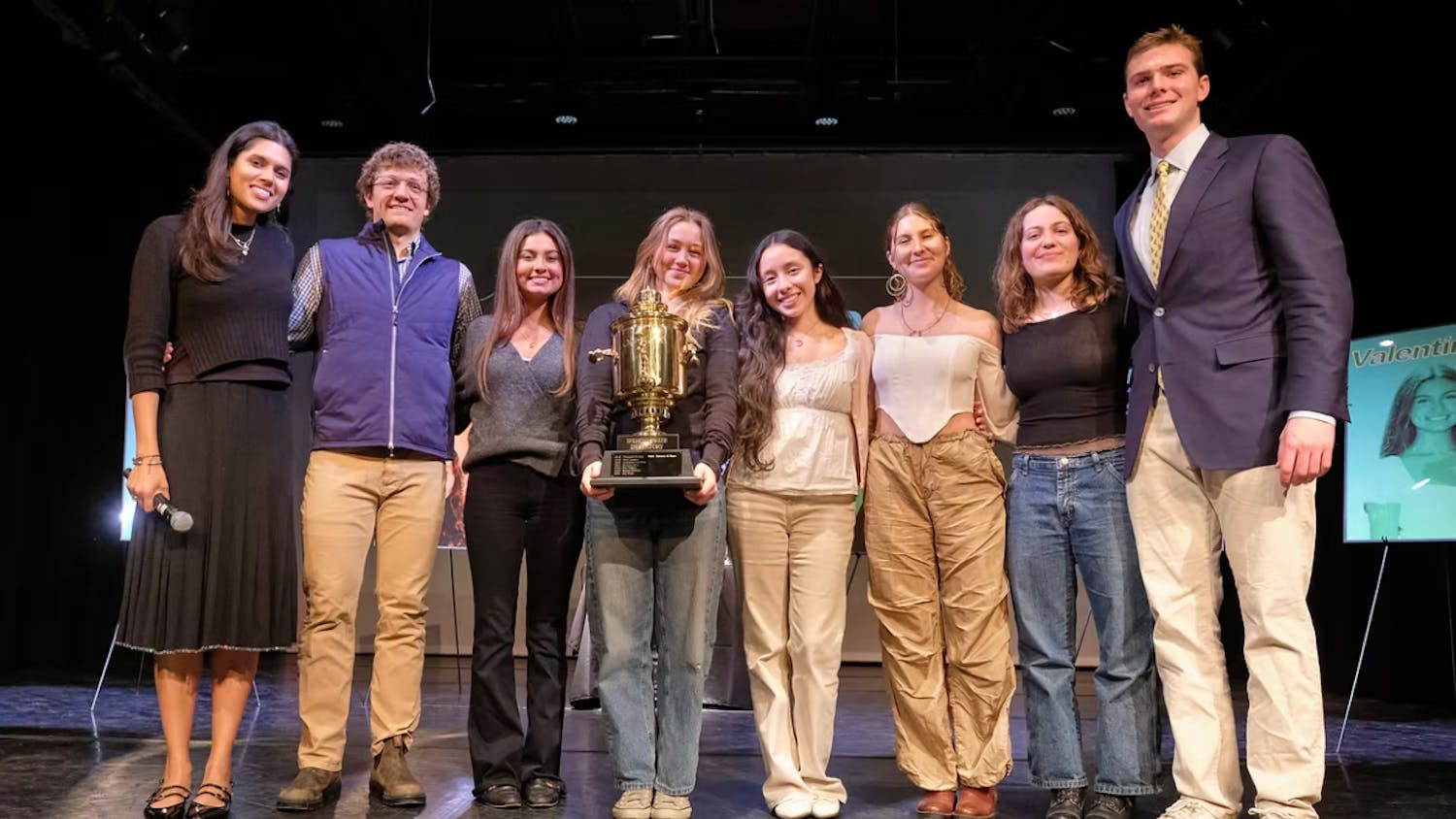Three weeks ago, Dominic Aiello ’22.5 and Brendan Philbin ’21, co-presidents of the Middlebury College Republicans, explained in a Campus op-ed their decision to invite Charles Murray to Middlebury for the third time this March.
Inevitably, the announcement stirred controversy across campus and reignited debates from 2017. Some of those debates have played out within College Republicans itself.
While the College Republicans will sponsor Murray’s upcoming talk, the co-presidents and their adviser, former Vermont Governor and college Executive in Residence Jim Douglas ’73 were the only individuals involved in the decision. Members of the club learned of Murray’s invitation at their meeting on Jan. 21, one day before the Middlebury community received notice through an opinion published in The Campus and an announcement by the college.
“The club did not vote on the prospect of bringing Dr. Murray to campus. As the elected presidents of the club, we have the ability to organize events on behalf of the club,” Philbin wrote in an email to The Campus. “The administration explicitly advised us not to tell other members of the community during the planning and we complied with that advice.”
In an email to The Campus on Feb. 18, Director of Media Relations Sarah Ray clarified that the administration only asked Aiello and Philbin to keep Murray’s visit confidential once the co-presidents had already invited him to speak. Ray said the college asked Aiello and Philbin to wait until they had confirmed a date for the event before telling others.*
In their op-ed, entitled “An invitation to reengage,” Aiello and Philbin cited two central reasons for bringing Murray to campus: freedom of academic inquiry and free speech, as well as Murray’s credentials.
George Werner ’21 sees the invitation as largely symbolic. Werner formerly served as the club’s treasurer and is currently the Representative to the State Federation for the Middlebury Chapter of the College Republicans. Although he does not agree that Murray was the best speaker to invite, he views this third visit as an opportunity for the Middlebury community to show that students have grown — and are now able to respect controversial speakers and their peers who may wish to listen to these speakers.
Clayton Hucks ’22 is also a member of College Republicans, but self-identifies as an independent voter. He expressed similar sentiments to Werner.
“Despite disagreeing with Murray’s views, I am a huge advocate for free speech and, therefore, think it is fine for the College Republicans to invite Murray to campus,” Hucks said. “I think free speech is dying on college campuses across our country and it is important that we try our best, here at Middlebury, to keep it alive.”
Former College Republicans co-president Kaleb Patterson ’21.5 disagrees with the decision to bring Murray back to campus. He sees the invitation as an attempt to be inflammatory, more than anything else.
“I think it really is just an attempt to sort of provoke the campus and I think it’s a really poor decision and a really self-centered decision,” Patterson said. “I think that their editorial was honestly a little bit of a facade.”
“Regardless of what happens, it’s going to reopen old wounds that I think we were maybe just now kind of getting over,” Patterson said, noting that the controversial invitation of right-wing Polish politician Ryszard Legutko last April only aggravated these wounds.
He said he sees value in bringing a controversial, thought-provoking speaker to campus, but that he doesn't know if Murray can even be considered “thought-provoking.”
Sophia Dongas ’21 served as co-president with Patterson last year, but said she chose to step down following a period of personal growth. While she no longer identifies as Republican and does not attend group meetings, Dongas still believes that engaging with dissenting perspectives plays an essential role in political growth.
“I hope that the invitation was not meant to provoke or incite unrest within our community. Rather, I would like to believe that the intention was to start an open dialogue among students and faculty,” she said.
However, she recognizes the larger significance that Murray has on the Middlebury campus. “The events of 2017 are a spectre that will always haunt our college’s history,” she said, and thus that “Charles Murray may not be the best figure to rally behind for the advocacy of free speech.”
Campus conservatives are generally divided between activism-focused, outspoken conservatives and more subtle conservatives, according to Patterson. He suspects that most students who identify with the latter group, including himself, are unhappy with the invitation.
Patterson has noticed a shift in the club’s goals since his tenure as president during the 2018–19 school year. While he viewed the group as a place for conservatives on campus to freely discuss ideas, he also sees Aiello and Philbin’s approach to the club as more activist. He explained that this form of aggressive activism among young conservatives on college campuses frequently takes the form of provocation.
Patterson said he will not be returning to group meetings as long as Aiello and Philbin — or other students with similar ideals — remain in leadership positions.
“I can definitely see [the invitation] pushing a lot of people away, who wanted more of a space to talk and meet other conservatives on campus,” he said.
Managing Editor James Finn ’20.5 contributed reporting.
*UPDATE — Wednesday, Feb. 19
The statement from Director of Media Relations Sarah Ray was not included in the original version of the article. It was later added for clarity.



